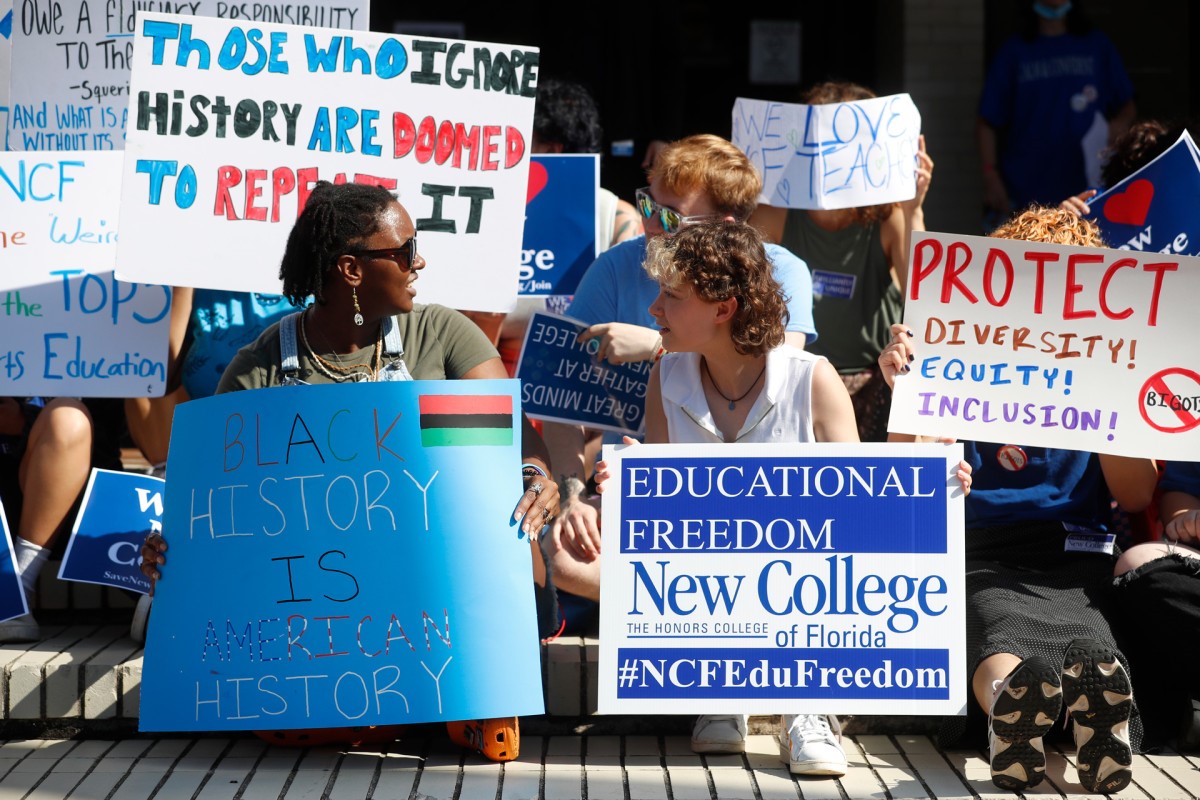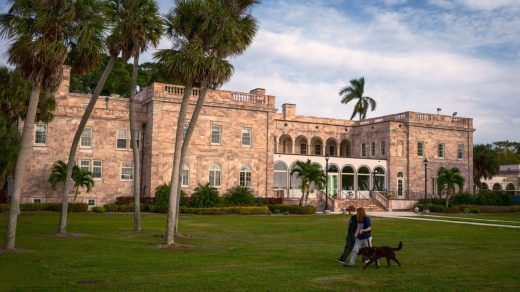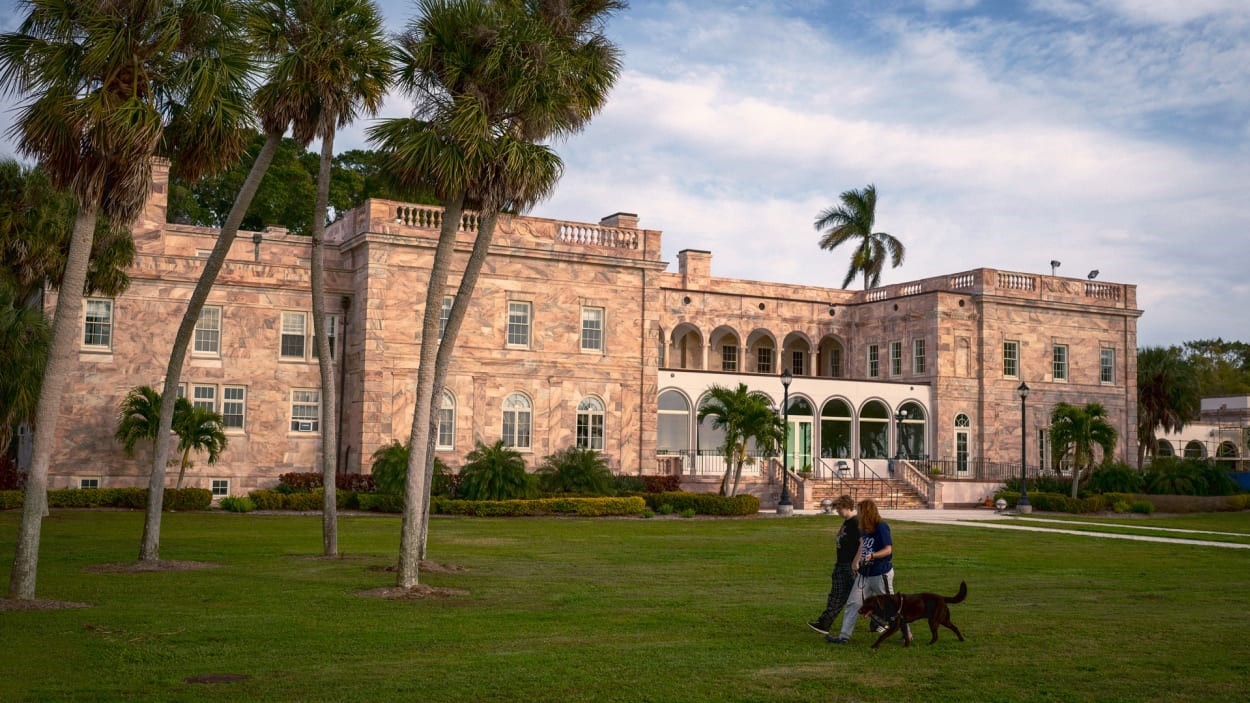How a New York school stepped in to help a Florida college targeted by Ron DeSantis
Governor Ron DeSantis’ mission to reshape education in Florida has manifested most acutely at New College of Florida, a public liberal arts school in Sarasota. There, the governor replaced the president and majority of the board, leading to the elimination of courses and a fundamental shift in the school’s ethos. But there’s been resistance along the way, and now a sympathetic college in New York is providing support in the form of digital courses for students as they decide whether, and how, to complete their degrees.
Alt New College is a resource of free short courses, tutorials, and lectures for New College students who feel they’ve been deprived of the education for which they had signed up. Offered by Bard College, a private liberal arts college in upstate New York that has a network of global campuses, the online courses can’t replace a proper degree program, but they aim to enrich students’ studies in the liberal arts and sciences, from gender studies to philosophy. Representatives of Bard say it’s crucial to show support as academic freedom is threatened.
Bard is offering the program with an organization it cofounded in 2020, the Open Society University Network. OSUN provides digital courses to students around the world, with a mission of advancing equitable education; it boasts a number of member institutions, from Tuskegee University in Alabama to Kyiv School of Economics. Also in collaboration is PEN America, a nonprofit raising awareness of threats to freedom of expression, and which has been particularly active in exposing the book bans resulting from DeSantis’ policies.

DeSantis has actively altered education at all levels in Florida, banning DEI initiatives, and curbing lessons on race, gender, and sexuality. At New College, part of Florida’s public university system, DeSantis replaced 6 of the 13 board members with people he handpicked, including hardcore conservative activists; and replaced the president with former Republican state representative Richard Corcoran. The board has scrapped DEI programs and gender studies, denied reputable professors tenure, and is sterilizing the longtime bohemian culture that had come to define the school in an effort to make it more mainstream and sports-oriented. The school has admitted its largest-ever class of freshmen this year, nearly half of whom are athletes.
It’s a blow to the school, which is modeled on the University of Oxford’s New College, and which has intentionally attracted nonconformist students, fostered a welcoming learning environment, and produced top academic achievement, including more Fulbright scholars per capita in its history than Harvard, Yale, and Stanford. In August, before the new school year started, a reported 40% of the staff had resigned for part or all of the academic year. As a result of dwindling course offerings and an untenable situation, a large number of students have been applying to other colleges.
Representatives at Bard felt they had to respond. “We’re committed to young people’s education and academic freedom, which are all under threat,” says Jonathan Becker, a professor of political studies and vice president of academic affairs. The new collection of [Alt New College] courses is a chance for enrichment for the students who haven’t left, as well as those who have and “are sort of lost right now,” says Becker. “They want to know they’re not alone, and we’re telling them they’re not alone.”
Providing education to those in need is not a new concept for Bard. The institution has long-established campuses and partnerships abroad, from Berlin to Afghanistan. It runs education programs for prisoners and a university in Palestine, and it launched a collaboration with Parami University in Myanmar, for students fleeing after the 2021 military coup. In Russia, Bard helped set up Smolny Beyond Borders, an effort to provide education for students leaving Russia due to the Ukrainian invasion. “Bard has been a proselytizer of rigorous liberal arts and sciences education in places where it’s underdeveloped, inaccessible, or absent,” Becker says. “That’s part of our mission statement.”
Now, Florida is in that “in need” category. Current and departed New College students can select from a diverse collection of remotely accessed OSUN courses, mostly in the social sciences, provided by the global faculty of the many Bard schools and partnerships. Fall courses are offered in human rights and health, intersectional feminism in contemporary literature, and Afro-Brazilian relations. Some of these were soft-launched in the summer, and though student enrollment has so far been modest, Becker hopes it will pick up.
In addition, Alt New College is offering lectures and “mini-classes” focusing on the attacks on education and democracy, and routes to resistance. It officially kicks off on Monday with a gender-studies lecture and panel with specialists in the area, including feminist writer Judith Butler. Others include a tutorial on youth and political power with March for Our Lives cofounder David Hogg, and a lecture on universities as civic actors, led by Becker himself.
Becker says the homegrown assault on education is worrying because he’s seen how authoritarian education policies have affected other democracies. Bard cofounded OSUN with Central European University (CEU), which was founded in 1991 with the mission “to promote open societies” and campuses in Budapest, Prague, and Warsaw. In 2017, Viktor Orbán, the fascist prime minister of Hungary, banished CEU from the country, forcing it to relocate its Budapest campuses to Vienna, Austria. Becker and others have noted that DeSantis’ educational takeover mirrors Orbán’s.
DeSantis’ war on education is also affecting more mainstream colleges, such as the University of Florida, and professors statewide fear it will continue as he tries to score points among Republican primary voters. As this occurs, Becker hopes to increase the number of Alt New College courses and eligible recipients, as needed. “We’re not sure what the end game is,” he says. “But we know right now, there are young people who feel that their education is under threat. And we can mobilize resources to support their education. So why not?”
(20)



